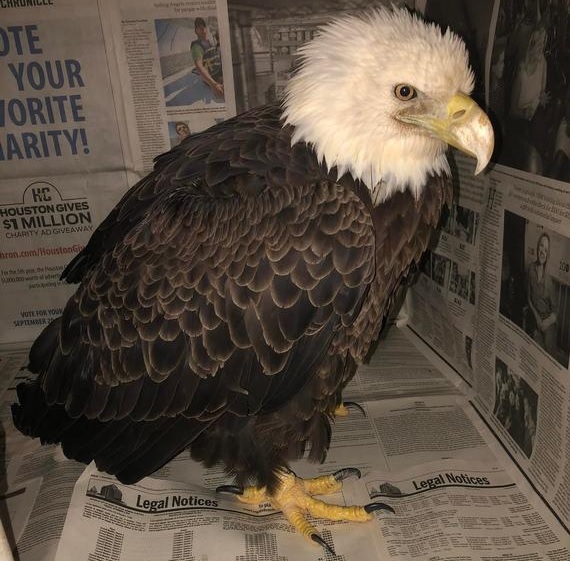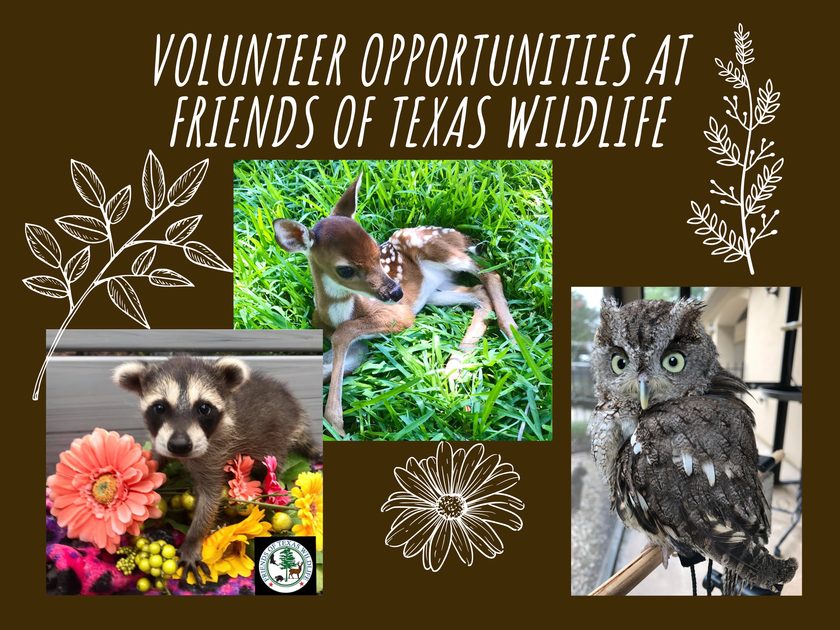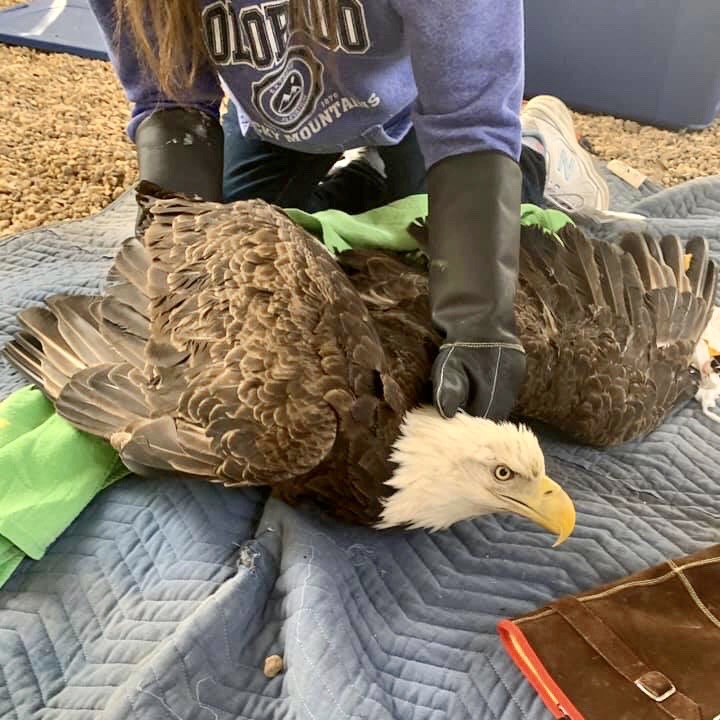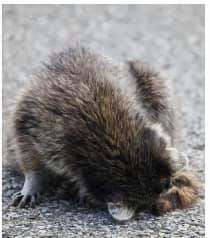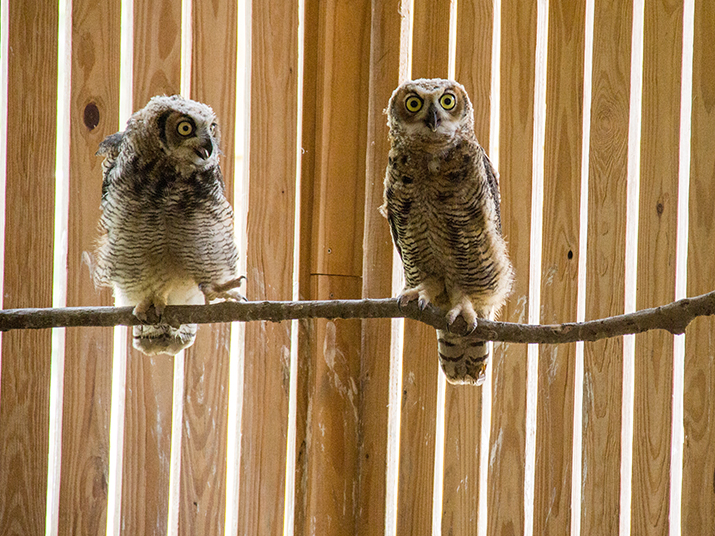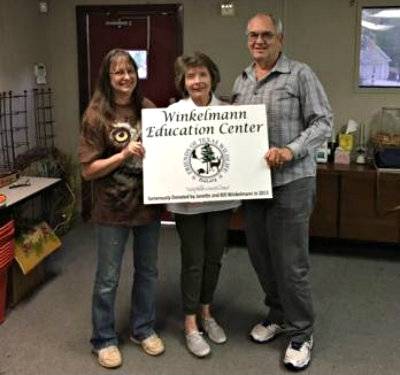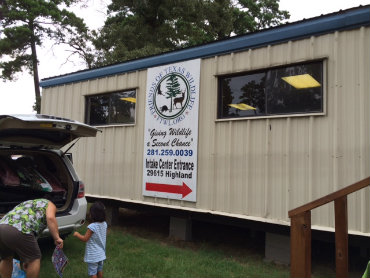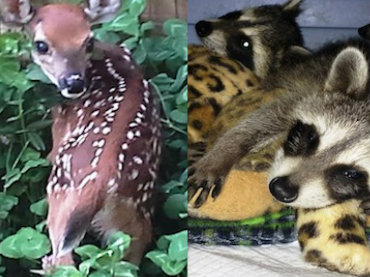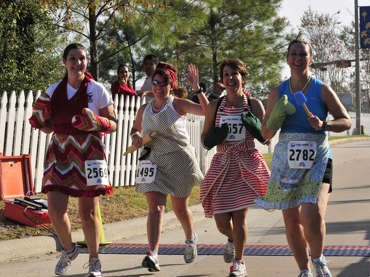- Sections :
- Crime & Public Safety
- Restaurants & Food
- Sports
- More
Categories
Friends of Texas Wildlife advises public not to interfere with nature
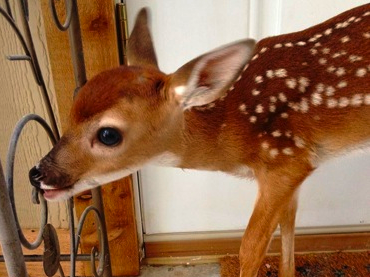
THE WOODLANDS, Texas -- Friends of Texas Wildlife (FTWL) is more than a rehabilitation center for orphaned and injured animals, they work ardently to educate the public on how to interact with the wildlife in the surrounding area. As time-consuming and demanding it is to nurse the animals back to health, FTWL maintains that educating the public is more difficult.
FTWL asks that residents not 'fawn' over the wildlife.
On June 6, FTWL received a call about a fawn that a family had in their possession. They told FTWL that "…they just had to take in.” The family was counseled to reunite the fawn with the doe, and as the story evolved, the family was sure the doe was dead. The fawn was given to a neighbor to deliver to the rehabilitation center and the true story came out. The fawn was taken from its mother and when it became more difficult to feed and take care of, the family did not know what to do with the fawn. Unfortunately an inadequate diet resulted in bloat, a serious condition that is often fatal.
“The fawn was on medications for six days and we had to enlist the services of a veterinarian to extract the infection from the fawn’s stomach,” said Janette Winkelmann, FTWL President, and a trained wildlife rehabilitator.
An extraordinary amount of time, energy, and funds, were expended unnecessarily. The family should had left the fawn where the doe thought she had safely left it, while she grazed. The local wildlife in The Woodland are not pets, and the public should avoid interfering with nature.
“The Bambi infatuation makes otherwise intelligent people make unintelligent mistakes,” said Winkelmann. “They take these babies away from their mothers, feed them the wrong food, let their children sleep with them. It’s all so senseless.”
These animals are not unlike humans. If they eat the wrong diet, they feel pain, they get sick, and in most instances the chances for their survival are slim. Nursing them back to healthy is a delicate formula of diet, age, and body weight; information most people are not knowledgeable about, and even blog sites can’t accurately advise without physically assessing the animal’s condition.
There are worse things than dying,” said Winkelmann. “It’s how you die.”
Since May 1, the Friends of Texas Wildlife have taken in 47 fawns, some whose mother’s have died, but many are ill when they arrive at the rehab center, most likely from improper feeding. FTWL said the number is above what they typically see, which indicates a higher amount of human intervention.
Winkelmann relayed a story of a fawn that had been taken and domesticated. It managed to get out of its pen and roamed the Lone Star College Montgomery campus, where students were feeding it human snack food. This posed a dangerous situation for both students and the animal. One accidental kick from a deer can kill a human being, and the deer was in serious jeopardy of being hit by a car on the campus as it roamed the parking lots. It took Winkelmann six trips to the campus to finally corner the deer and inject it with a sedative, in order to capture and relocate.
“This is just one story, but there are many others,” said Winkelmann. “ I could write a book.”
In fact, Winkelmann will be setting up a blog on Woodlands Online, which will mirror information shared on the FTWL Facebook page, to better educate the public on cohabitating with the wildlife in a way that is responsible and unobtrusive.
If the public truly wants to help the urban wildlife, it’s best that they leave it alone. If an animal is injured or sick, call FTWL at 281-259-0039 or email the center. They will advise on the necessary steps to take to get the animal the proper assistance. For those who want “hands-on” involvement, the center encourages them to become a trained rehabber. Classes are taught three times a year. The center currently has 45 volunteers who work four hours a day taking care of the approximately 3,500 animals taken in for rehabilitation and release.
By rights, destructive interventionists should be reported to the local Game Warden. The fine for intentionally interfering, harming, or destroying the wildlife is $500 to $2,000.
The Friends of Texas Wildlife receives no federal or state funds or grants. It operates solely on donations, many of which come out of the pockets of the rehabbers. To offset the expenses a fundraiser benefit was hosted June 15. The event raised $1,500, not nearly enough to rehabilitate the fawn population, let alone the other urban wildlife and wild birds.
The most beneficial way the public can help is by making donations directly through the FTWL website at Friends of Texas Wildlife and paying via Paypal, or by mailing checks to:
Friends of Texas Wildlife
P.O. Box 130786, Magnolia, TX 77393-0786
For more information about FTWL visit their website at Friends of Texas Wildlife.
Incidentally, the fawn mentioned in the story did survive due to the extraordinary efforts of rehabber, Winkelmann, and one of the center’s veterinary partners. However, according to Winkelmann, there are many stories that don’t have a happy ending, and all because the human residents didn’t respect the privacy of The Woodlands’ original residents.
Comments •


